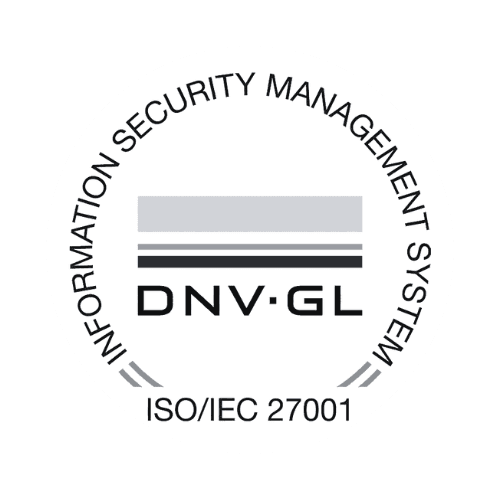Nichts verpassen & anmelden:
Written by AI
Sustainable Skills: What Skills Tomorrow's Workforce Needs
The constantly changing world of work requires employees to acquire new skills and competencies increasingly. It is important to become familiar with sustainable skills to meet the demands of tomorrow. In this article, we will discuss what sustainable skills are, why they play an important role in the workplace, and how they can be developed. We will also look at the impact of these skills on the job landscape and provide an outlook on how to prepare for the future of work.
Understanding Sustainable Skills
Before we delve into specific skills, we must first understand what sustainable skills actually are and why they are so important. The definition of these skills may vary depending on the context, but generally, it refers to abilities that enable individuals to adapt to the challenges and changes of the work environment and to be successful.
Definition and Importance of Sustainable Skills
Sustainable skills refer to the skills that go beyond mere technical knowledge and enable employees to be flexible, adaptable, and willing to learn. These are skills that are not outdated or can be replaced by automation or artificial intelligence. The importance of these skills lies in the fact that they give employees the ability to adapt to constant changes and to succeed, regardless of the industry or field.
The Role of Sustainable Skills in the Workplace
Sustainable skills play a crucial role in the changing world of work. Globalization, digitalization, and automation have already led to significant changes in the job landscape and will continue to do so. Employers are looking for employees who not only possess the necessary technical knowledge but also the ability to quickly adapt to new technologies and working methods. Future-oriented skills enable employees to meet new requirements and remain competitive.
An example of a sustainable skill is the ability for critical analysis. In a rapidly changing work environment, it is important to question information critically and make informed decisions. Employees with this skill are capable of solving complex problems and developing innovative solutions.
Furthermore, intercultural competence is also of great importance. In a globalized work environment, where teams often consist of employees from various cultural backgrounds, it is essential to have an understanding and appreciation of other cultures. Employees with intercultural competence can work effectively with people from different cultures, thereby promoting the success of the team.
The Most Important Sustainable Skills
Now that we understand the importance of sustainable skills, let's look at the key skills that tomorrow's employees need.
Technological Skills and Digital Competence
In today’s digital world, technological skills and digital competence are essential. Employees must have knowledge in areas such as information technology, data analysis, and social media. It is important to be familiar with the latest technologies and software applications and have the ability to use them effectively.
Critical Thinking Skills and Problem Solving
The ability to think critically and solve problems is another important skill in today’s workplace. Employers are looking for employees who are capable of analyzing complex problems, finding alternative solutions, and making informed decisions. Critical thinking skills also help in evaluating information and avoiding mistakes.
Creativity and Innovativeness
In a rapidly changing work environment, creativity and innovativeness are crucial. Employees must be able to generate new ideas, develop innovative approaches, and tackle challenges creatively. The ability to think outside the box and find new paths is a valuable asset.
Another important aspect of sustainable skills is intercultural communication. In a globalized world where companies increasingly operate internationally, it is essential to have the ability to communicate effectively with people from different cultures. This requires an understanding of cultural differences, the ability to adapt, and sensitivity to the needs of others.
In addition to technical skills and intercultural communication, emotional intelligence is also an important competence. Employees must be able to recognize and control their own emotions, be empathetic, and work effectively with others. Emotional intelligence enables them to build relationships, resolve conflicts, and create a positive work environment.
Developing Sustainable Skills
Developing sustainable skills requires a conscious effort from both employees and employers.
Education and Training for Sustainable Skills
A solid education and continuous training are key to developing sustainable skills. Employees should look for opportunities to expand their technical knowledge and familiarize themselves with new technologies or working methods. Companies should also encourage their employees and provide them with opportunities for further education.
Self-Directed Learning and Continuous Improvement
Sustainable skills require continuous learning and personal development. Employees should be able to set their own learning goals and learn in a self-directed manner. This may include reading specialized books, completing online courses, or networking with like-minded individuals. Continuous improvement of one’s skills is the key to professional development.
An interesting aspect of developing sustainable skills is the increasing importance of soft skills. In addition to technical knowledge, social skills such as teamwork, communication, and conflict resolution are crucial. Therefore, employees should invest not only in technical areas but also in the development of their soft skills to succeed in a constantly changing work environment.
Furthermore, flexibility plays an important role in developing sustainable skills. The ability to quickly adapt to new situations and act in a changing environment is critical. Employees should be open to change and ready to take on new challenges to continuously expand their skills and develop professionally.
The Impact of Sustainable Skills on the Job Market
Sustainable skills are already impacting the job landscape and will continue to do so in the future.
Changes in the Job Landscape
The job landscape is changing rapidly. Traditional jobs are being replaced by automation and artificial intelligence while new skills and jobs are emerging. Employees with sustainable skills are better positioned to adapt to these changes and find new positions.
The Role of Employers and Policymakers
Employers and policymakers play an important role in promoting sustainable skills. Companies should encourage their employees to further educate themselves and give them the opportunity to develop new skills. Policy shapes education and labor market policy to support the development of sustainable skills.
An interesting aspect of developing sustainable skills is the increasing importance of soft skills. In addition to technical skills, social skills such as communication, teamwork, and problem-solving skills are becoming more relevant. Employees with a balanced set of soft skills are well-equipped to adapt flexibly to new work environments and collaborate effectively with others.
The Importance of Lifelong Learning
Another important aspect related to sustainable skills is the need for lifelong learning. In a constantly changing work environment, it is essential to continuously acquire new skills and update existing competencies. This requires a culture of lifelong learning, both at the individual and organizational levels.
Conclusions and Outlook
To ensure success in the workplace of tomorrow, it is essential to develop sustainable skills. Employees should continuously expand their skills and align them with their professional goals. Employers and policymakers should promote the development of sustainable skills to ensure the competitiveness of the workforce and the adaptability of the job landscape.
Preparing for the Future of Work
The future of work presents many challenges and opportunities. Individuals should actively work on developing their sustainable skills and preparing for the changes. This can include participating in training, developing new skills, or building a strong professional network.
The Importance of Sustainable Skills for Individual Success
Sustainable skills are the key to individual success in the workforce of tomorrow. Employees who possess these skills have better chances of seizing new career opportunities and achieving success. Therefore, it is important to actively work on developing and strengthening these competencies.
The Role of Digitalization in the Future Workplace
A crucial factor that will shape the future workplace is the ongoing digitalization. More and more professions require digital skills to meet market demands. It is therefore essential to become familiar with digital tools and technologies to succeed in the workforce of tomorrow.








